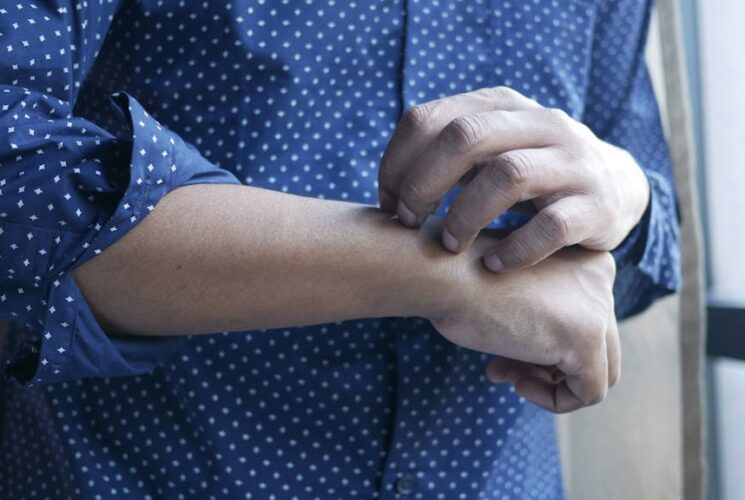
Itchy skin rashes can be irritating and uncomfortable, affecting your daily activities. These rashes can appear for a variety of reasons, including allergies, infections, or skin conditions. Understanding the causes of these rashes and knowing the best treatment options can help you manage the discomfort and find relief quickly.
Itchy rashes are often caused by different factors. Allergic reactions to foods, medications, or environmental triggers like dust, pollen, or pet dander can lead to skin irritation. Conditions such as eczema or psoriasis can also cause persistent itching and rashes. Infections like fungal or viral infections, including chickenpox, can create itchy skin. Other causes include contact with irritants like poison ivy or harsh chemicals that lead to rashes.
Itchy rashes can look different depending on the cause. Some rashes may appear red, inflamed, and dry, while others may present with bumps, blisters, or scaly patches. The itching can vary from mild to intense, and it may worsen during certain times of the day or when you come into contact with irritants. The rash may also spread to other parts of the body, making it even more uncomfortable.
The treatment for an itchy rash depends on its cause. Over-the-counter antihistamines or hydrocortisone creams can help relieve itching and reduce inflammation for mild rashes. These medications work by calming the skin and limiting the body’s allergic response. If the rash is caused by an allergic reaction, avoiding the triggering substance is important for prevention.
Along with medical treatments, there are simple home remedies that can help soothe itchy rashes. A cool bath with oatmeal or baking soda can provide relief by calming the skin. Applying aloe vera gel or coconut oil can also help hydrate and soothe irritated skin. It’s important to avoid hot showers, as they can worsen itching and dry out the skin further.
While many rashes can be treated at home, it’s important to see a doctor if the rash becomes severe, doesn’t improve with over-the-counter treatments, or spreads. If the rash is accompanied by pain, swelling, or signs of infection, seeking medical advice is crucial. A healthcare provider can diagnose the cause of the rash and prescribe stronger treatments if necessary.
To prevent future rashes, try to avoid known allergens and irritants. Use mild, fragrance-free soaps and moisturizers to keep your skin hydrated and protected. Wear soft, breathable fabrics and avoid scratching the rash, which can make the situation worse.
Itchy skin rashes can be a nuisance, but with the right treatments and home remedies, you can manage the discomfort effectively. Identifying the cause of the rash and using appropriate treatments, like antihistamines or soothing creams, can bring relief. If the rash persists or worsens, a doctor can help determine the right course of action. With proper care and attention, you can keep your skin comfortable and healthy.
© InsiderScoop